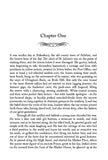Ovington's Bank
by Stanley Weyman
Ovington’s Bank is a forgotten masterpiece from peerless story-teller Stanley Weyman who was once as popular as Dickens, Kipling and Robert Louis Stevenson.
The book was written at the height of Weyman’s powers, and is considered the finest of his 24 novels.
Set in 1825, the novel’s themes are as relevant today as then. The tale follows a run on a private bank: in the fall-out, the protagonists are challenged to examine their motives, their morals and their values as the surprising plot unfolds.
This is a tale of tension between traditional values and modern opportunities; between ambition and love; self-denial and passion.
In this fast-moving story, the unforgettable characters feature in a breathtaking stagecoach dash to London, a violent mugging, a cunning theft, a desperate bid to keep up appearances and the tenderest of love scenes.
This elegantly designed Merlin Unwin Books edition is a fine jacketed hardback with navy endpapers, swell-rules and is set in caslon typeface.
Jim Lawley’s essay provides the most complete existing biography of Stanley Weyman (1855-1928), including Weyman’s own unabridged account of his dramatic arrest and imprisonment on suspicion of spying in France in 1885.
Availability:
Illustrations:
Pages:
416
Published:
Sep 06, 2018
ISBN:
9781910723821
About the Author:
Stanley John Weyman was born in Ludlow in 1855 and educated at Shrewsbury School and Christ Church College, Oxford where he obtained a degree in Modern History.
He qualified as a barrister and was called to the bar by the Inner Temple in 1881.
He supplemented his meagre income by writing short stories for the Cornhill Magazine.
The editor's suggestion that he try his hand at writing novels proved a turning point in Weyman's career. International bestsellers such as A Gentleman of France, The Man in Black and Under the Red Robe earned him immense popularity and a substantial fortune.
For the last thirty years of his life he lived in Denbighshire, where he was also chairman of the Magistrate's Bench.
He died in 1928.













